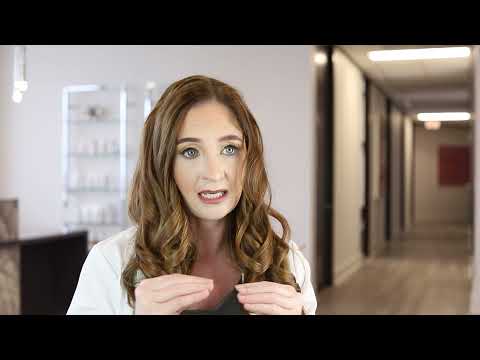A SMAS facelift can last 10 to 15 years. SMAS stands for sub muscular aponeurotic system, which is a very thin layer of muscle. Under your skin you have fat and under that is a layer of muscle. Those muscles control your smiling, laughing, and moving your face. These muscles descend over time, creating things like jowls, marionette lines, and laugh lines. The SMAS facelift works by lifting things back up to where they used to be, rewinding time and making you look at least 10 years younger.
If you did just one facelift and you never did anything else again, you should always look about 10 to 15 years younger than your age. However, as time marches on you may start to notice more aging, such as laxity in the jowls and neck. Some people might want a touch up at that point, but some are fine with always looking 10 to 15 years younger than their age, even if they do experience some aging down the line.
What is the difference between a deep plane and a sub muscular aponeurotic system facelift?
The main difference between a deep plane and a sub muscular aponeurotic system facelift is an ongoing debate. The deep plane facelift is done under the muscle, while the SMAS is done on top of the muscle, but both procedures reposition the muscle, thereby lifting the face. Different surgeons have a better comfort level with one of these procedures. If you look at a surgeon’s portfolio of before and after pictures, and you like what you see, then chances are you will be happy with the type of facelift they offer.
The advantage of a deep plane facelift is that you can get a bit better lift in the mid-face. What that means is that you can lift the nasolabial folds and marionette lines better because when you do a deep plane facelift, you go under the muscles that control smiling, laughing, and moving your face. During this facelift, we move all that in one piece back up where to where it should be.
With a submuscular aponeurotic system facelift, or SMAS lift, what we’re doing is lifting up the skin and muscle together as if we are making a bed and pulling the blankets and sheets up at one time. Instead of going under the muscle, we’re grabbing it with the skin and we’re putting it where we want it to be, then suturing it in place. The type of sutures used depends on your surgeon. Are they permanent sutures? Are they dissolvable sutures that take a long time to dissolve? Either are equally good.
The benefit of the SMAS facelift is that it is slightly safer when it comes to the facial nerve that controls the muscles that help you smile, frown, raise your eyebrows, move your face. With this lift we’re actually never in the same plane as that nerve, whereas with the deep plane, we are in that same plane. The surgeon just has to know exactly where it is, which in the right hands, should never have a problem. The SMAS provides that extra layer of safety. Also, since we are not lifting under the muscles, the patients do not have as much bruising and swelling making recovery time a bit faster.
What it comes down to is just two different ways to get to the same endpoint, but honestly, when you look at different patients’ outcomes, the results are very good from either procedure. The surgeon is either going on top of the muscle or under the muscle to lift. It’s a very good idea to have a conversation with your surgeon, asking which type of facelift they will perform, and what they feel will work best with your face and your health. A deep plane lift works better on someone who has trouble healing. You have a thicker flap that you’re working with, meaning the skin and the muscle all move together, and you’re moving all of that vasculature together instead of moving the muscle and then putting the skin over it.
The SMAS facelift is slightly safer whenever it comes to the facial nerve. That is the nerve that controls the muscles that help you smile, frown, raise your eyebrows, move your face. With the SMAS facelift, you’re actually just going on the top of it and moving it where you want it to be. So you’re never in the same plane as that nerve. With the deep plane, you are in that same plane. You just have to know exactly where it is, which in the right hands, you will never have a problem with it, but it’s just that extra layer of safety.
How much does a SMAS facelift cost?
The cost of a SMAS facelift varies by region, by surgeon, by whether they are just doing the face or the face and neck together. Cost can vary from $6,000 up to $25,000 depending on those factors.
If you have questions? Call or email any time. I help people like you every day and I’d love to talk.
Have questions? I’d love to help.
Call me at (281) 336-9300
Read More
What Is the Average Cost of a Facelift?
Facelift Before & After Photos
About Dr. Angela Sturm
Dr. Angela Sturm is a double-board certified facial plastic surgeon with certifications with the American Board of Otolaryngology – Head and Neck Surgery and the American Board of Facial Plastic Surgery. Dr. Sturm’s meticulous nature makes for exceptional results and satisfied patients. Dr. Sturm was named Texas Monthly’s Super Doctors Rising Star in 2016-2017, Texas Monthly’s Super Doctor in 2018-2019, H Texas Magazine’s Top Doc in 2013-2018, Top Doc by Houstonia magazine in 2016-2018, Houston Business Journal’s People on the Move and 40 under 40, Blazing Star Award by Texas Women’s Chamber of Commerce, Top Women in Business, one of the Top 30 Influential Women of Houston, Best Female Cosmetic Surgeon in Out Smart, and given the Patients’ Choice Award, On Time Doctor Award and Compassionate Doctor Award by Vitals.com.


